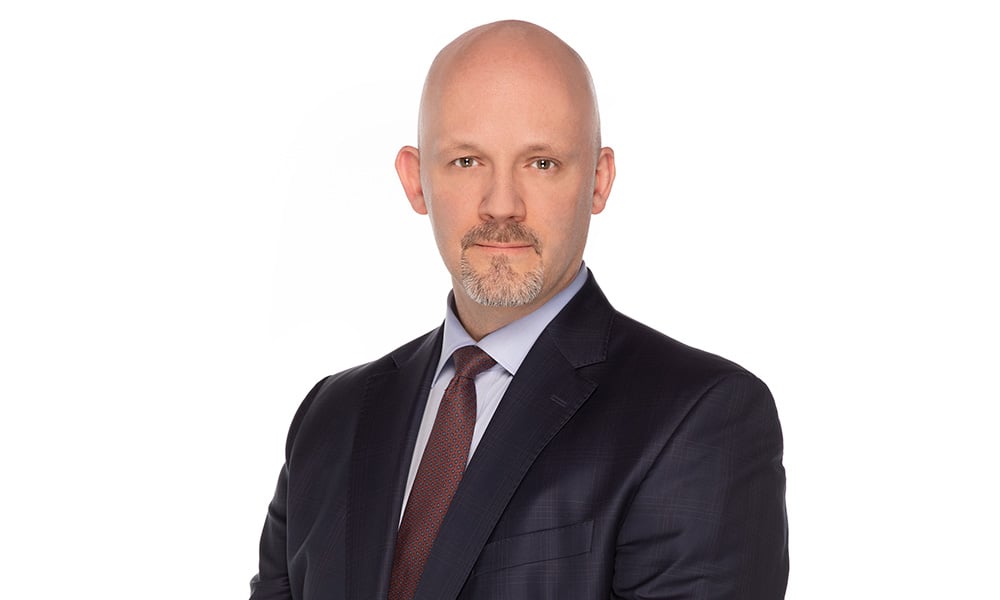Firm's focus on risks in the market and retirement investors led to well-placed portfolios in coronavirus storm

Another calendar month is almost over, marking another four weeks of shut-down businesses, furloughs, and unemployment for many Canadians caught in the COVID-19 crisis. Along with promises of financial support and public health investment, government officials are reassuring the restless public with one refrain: this too shall pass.
That’s the same message Steve Locke of Mackenzie Investments wants to stress for retirement investors, particularly with regards to recent economic forces that have buffeted the financial markets.
Not forever, but for now
“In the last few months, we’ve seen a rapid change in market valuations for equities as well as areas of credit and fixed income,” said the senior vice president and head of the Mackenzie Fixed Income Team. “That came from the realization that the coronavirus has become a global economic issue, which led to all kinds of policy implementation to suppress the virus.”
While the danger of economic suppression continues to weigh on investors, Locke noted a tenor of cautious optimism in the general markets that things will return to normal over time. It’s no rainbows-and-unicorns outlook, however, as he acknowledged pockets of weakness and risk that have become even more crucial for retirement investors.
“When you see very low yields on the government yield curve or, for example, in some banking products, it’s a littler bit disturbing,” Locke said. “It’s not unfamiliar because we’ve been in the low-yield environment for 10 years, but it looks even lower today.”
‘Business as usual’
The COVID-19 pandemic has also created an environment of radical uncertainty, filled with genuine unknowns relating to the depth, scope, and longevity of the virus’s global impact. That means building defensive products into a retirement portfolio, with an eye toward tail risk management and sequencing of returns risk, is more important than ever.
“In some ways, the moves we made last quarter were business as usual,” Locke said. “These are things we’ve contemplated and engaged in with respect to our own investment strategies for the last five to seven years.”
While many portfolios were blindsided by the chaos in fixed-income markets in March, he said Mackenzie benefited from both strategic and tactical decisions. Aside from the continuous protection against widening credit spreads built into its unconstrained bond ETF MUB, portfolio managers added insurance against credit risk and interest rate risk within its core-plus strategies.
“Reducing risk was a priority for us in 2019, and we made extra moves well before the end of the first quarter this year as we saw major risks developing from the coronavirus,” Locke said. “We reduced potential for the risk to hit our fixed income portfolios in certain areas of credit risk, for example, exposure to certain high yield sectors. We also implemented hedging techniques, some of which we directly employed because of coronavirus issues.”
Taking stock of bond-market opportunities
While sentiment might feel generally depressed in the low-yield environment, he said there are investment opportunities for canny fixed-income investors and managers. He sees signs of cheaper valuations in some areas of credit, which can produce a very meaningful income stream and total return in the firm’s fixed-income portfolios.
“There are actually some offerings that can fetch anywhere between 3% to 6%, without having an awful lot of risk attached,” Locke said. “That’s where we’re looking to take selective advantage in the weeks and months ahead.”
As for retirement investors, he said the current downturn in the markets could be a good time to work with a financial advisor to revisit or set up their financial plans.
“You want to make sure you're doing it with a level head and with a perspective on the medium to long term, and not as a kneejerk reaction to an event that's happened,” Locke said. “I think that's where careful financial planning is really, really important as a stabilizer in our emotional state around the investments we're making.”



